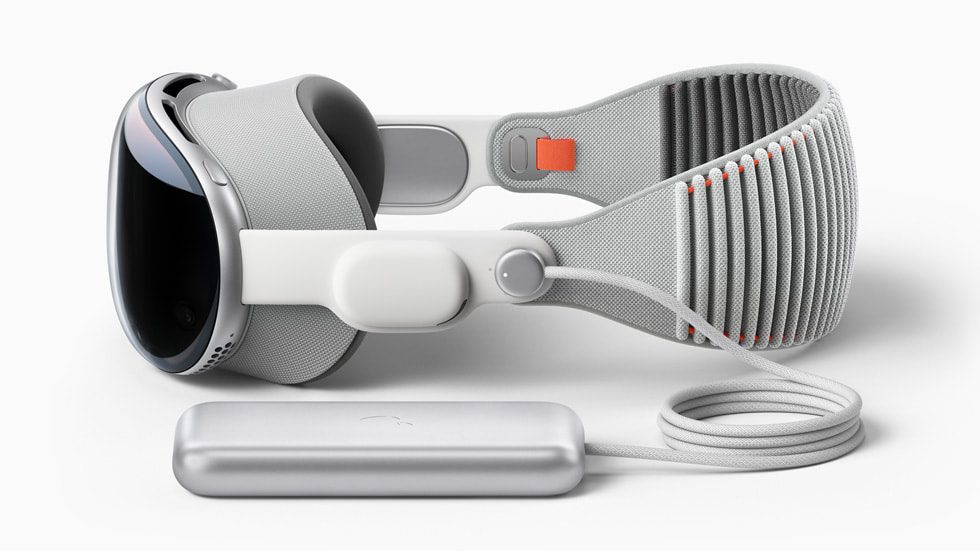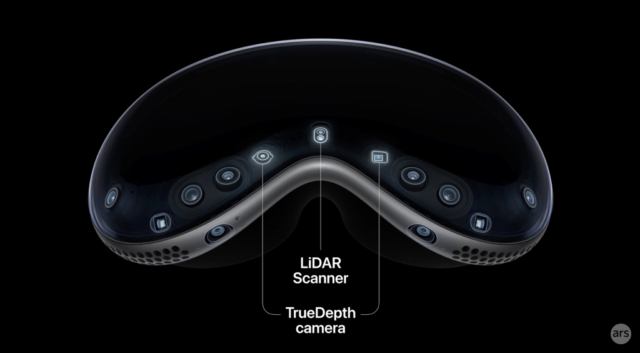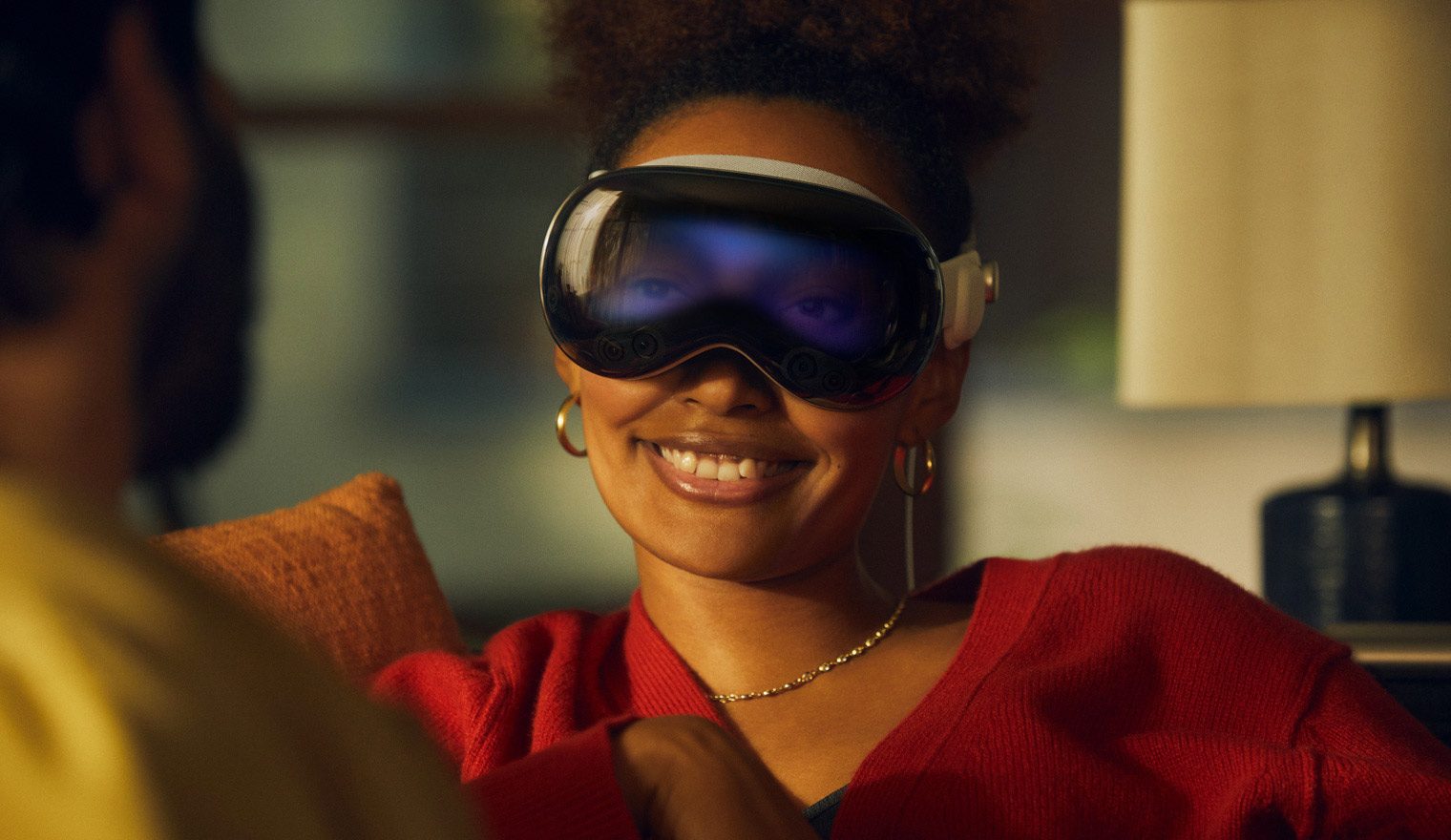Today at Apple’s Worldwide Developers Conference (WWDC) the Cupertino tech giant unveiled its long-awaited XR headset, dubbed Vision Pro.
Similar to Meta’s Quest Pro and newly unveiled Quest 3 headset, Apple’s first mixed reality headset is capable of both virtual reality and augmented reality thanks to its color passthrough cameras, however it appears the company is focusing much more on AR tasks.
Called a “spatial computer” by Apple, the device is in large part targeting general computing tasks such as content consumption, video chatting, and productivity apps–the sort you might find on the company’s iPads and Macs, albeit available through its own device-specific App Store.
Apple Vision Pro’s input is based on optical hand tracking, eye-tracking, and voice input, and doesn’t feature controllers like headsets decidedly more dedicated to gaming.

Here’s a brief breakdown of the spec shared with us today: Apple’s M2 chipset runs the standalone headset, while its new R1 chip processes input from 12 cameras, five sensors, and six microphones. R1 is said to stream new images to the displays “within 12 milliseconds — 8x faster than the blink of an eye,” the company says. That cable and pack you see in the image above is actually a battery, which the company says provides two hours of use.

Vision Pro features custom micro‑OLED display system which the company says packs in 23 million pixels, or more than a 4K TV. We’re still learning about more specific hardware specs, such as field-of-view (FOV) and more concrete numbers for its displays.
The headset also features an exterior display to show a user’s eyes. A system, called EyeSight, can either obscure the digital version of your eyes to other people in the room, or show them to indicate you’re ready to talk face-to-face.

Vision Pro is coming to the US first in early 2024, priced starting at $3,500, putting it clearly in the “enthusiast” camp. Apple calls it its “most advanced personal electronics device ever.”
We’re at Apple’s campus for WWDC today and are going hands-on with Vision Pro today. Check back soon for our full impressions, and to find out if Apple’s first big entry into XR was worth the wait.
This story is breaking. Check back soon for more info.



